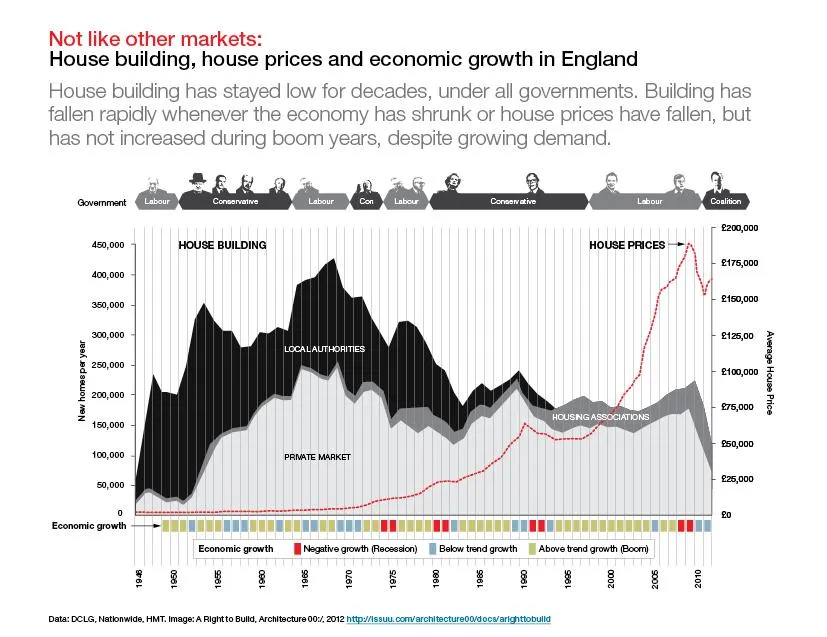We want economic growth, so how about more homes?
Published: by Toby Lloyd
You might have missed Nick Clegg’s announcement on the next wave of city deals: apparently all twenty cities that applied for a city deal will now enter talks with the Government ‘on a staggered basis’, to ‘negotiate deals that give them the levers and powers they need to drive economic growth.’
OK, so this may not constitute a revolution in civic leadership, but Clegg’s convolutions do reveal an interesting tension within central government: they’re desperate to drive economic growth, but bound by a spending cuts and localism agenda that ties their hands.
This problem is just as acute when it comes to Clegg’s other big idea for regional growth: new garden cities.
Everyone wants growth. Almost everyone wants new infrastructure. And increasingly, almost everyone wants more homes built.
The good news is that we don’t have to choose between these three goodies, because providing infrastructure enables more homes to be built, and both produce jobs and growth.
The bad news is that we’re not getting any of them, despite an ever-growing stream of initiatives designed to unblock, set free, kick start, or pilot new models of development.
After almost three years of localism, deregulation and reform, the numbers are still resolutely awful, as this graph shows.
This suggests to me two things to me. Firstly, cutting public investment by more than 60% overnight may not have helped. (A cheap point, but fair).
But more worryingly, it suggests that the conventional policy levers aren’t working any more. A relentless downward ratchet seems to apply to house building: in bad times, the market shuts down and supply plummets. But in the boom years, house prices rocket and supply barely ticks up, even with a government push.
The result is a falling trend line, house prices no one can afford and a catastrophic shortage of homes.
Clearly, a few more tweaks, a little bit more cash, or another initiative is not going to transform this picture. We need something big. As big as a city – or several in fact, as we need to be building roughly a new Sheffield’s worth of homes every year.
To build a city you have to actually try – you can’t just hope it’ll build itself with a bit of encouragement and red-tape busting. You have to decide where it’s going to go, get hold of the land, plan it, put in the infrastructure and build the homes. Which is what everyone claims to want to happen.
What’s missing is the mechanism. With the exception of the Olympic Delivery Authority – and it was exceptional – we lack the institutions that could actually build new settlements. Hence Clegg’s promotion of garden cities.
Compulsory reading for Clegg’s team should be ‘Transferable Lessons from the New Towns’. It is full of useful tips on how to build a new city, efficiently and cost effectively, using existing (if neglected) policy levers.
Turns out it’s quite easy really, if you have the political will: powerful development corporations acquired the land at pre-planning prices, and gave themselves planning permission for whole new cities, which they then built. Then they sold the homes, using the profits to pay off their debts (early). And with nary a multi-stakeholder partnership board or PFI leaseback contract in sight.
A generation later, more than two million people now live in the new towns. The last of them, Milton Keynes, is not only still building homes, it’s also one of the country’s few economic hot spots.
Handily, the new town powers are still sitting on the statute book. The catch is that someone has to decide which bit of the country should be blessed with a whole new settlement. And that means, invariably, upsetting some people, and does rather run counter to the whole localism thing.
Last year Nick Clegg promised us a garden cities prospectus that would set out how the Government proposed to square this circle and make ‘locally planned, large scale developments’ happen. It’s fair to say that this concept has been treated with a degree of scepticism by fans of new towns.
But as the economy threatens to enter triple-dip territory, the pressure to get some big developments going might just be the spur needed to dust off those powers and get building for real.
